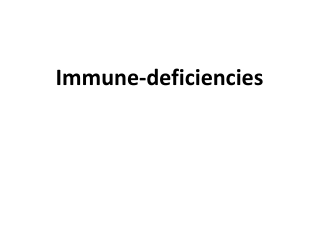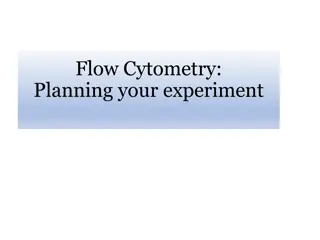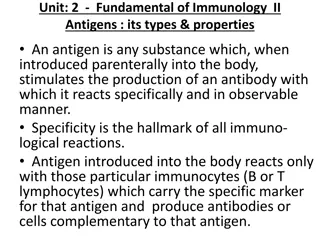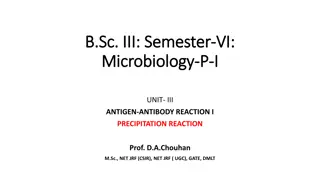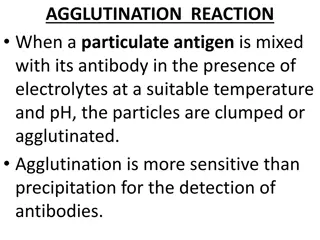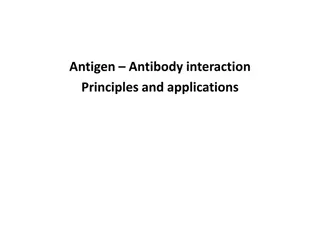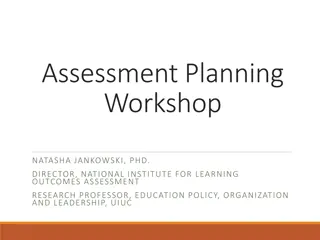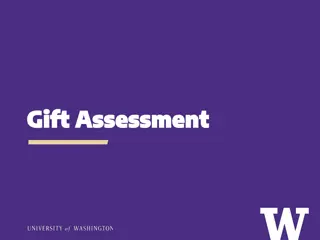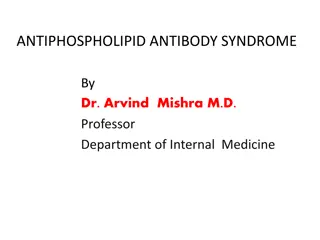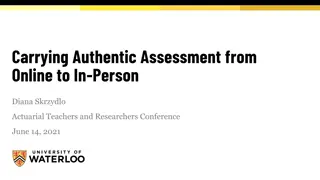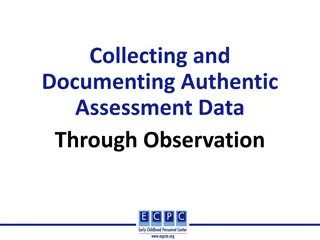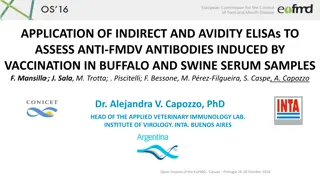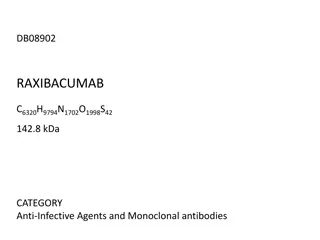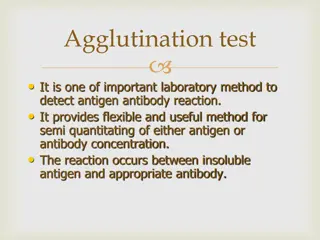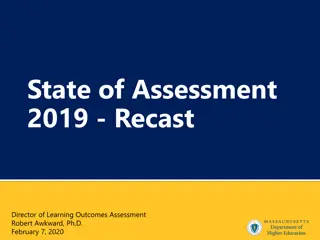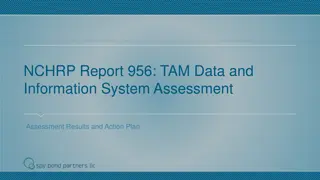Pharmaceutical-Contract-Development-and-Manufacturing-Market
In addition, the growing demand for cell and gene therapies and personalized medicines and growth in the High-potency Active Pharmaceutical Ingredients (HPAPI) and Antibody-drug Conjugates (ADC) markets are expected to offer significant opportunities for the growth of the pharmaceutical contract dev
1 views • 4 slides
Immune-deficiencies
Immune deficiencies can be classified into primary hereditary disorders based on clinical presentations, including cell-mediated, antibody-mediated, non-specific, and complement activation deficiencies. Major clinical manifestations of immune disorders range from B-cell deficiencies to phagocytic ce
2 views • 46 slides
Transfusion
Blood transfusion is a crucial medical procedure worldwide, with various components like packed red blood cells, plasma, platelets, and cryoprecipitate being utilized for efficient use. Differential centrifugation is employed for component preparation, ensuring precise separation of red blood cells,
2 views • 45 slides
Sheffield Early Help Assessment Form Update and Integration with Extended Support Plan
Sheffield has introduced an updated Early Help Assessment form to streamline the assessment process within the Early Help System. This new form combines the Early Help Assessment with the Extended Support Plan, aligning various assessment tools and referral forms into one comprehensive document. The
5 views • 22 slides
Targeting human exosomes via bispecific antibody platform
Explore the potential of targeting human exosomes using a bispecific antibody platform, enhancing drug delivery capabilities. The study delves into engineering exosomes as drug carriers, developing exosome targeting antibodies (ExTAbs), and verifying exosome delivery efficiency. Future directions in
7 views • 12 slides
APPROACH TO SPLENOMEGALY
The spleen, an important organ in the reticuloendothelial system, plays key roles in red blood cell quality control, antibody synthesis, and removal of bacteria and red blood cells. Understanding normal spleen size and functions is crucial in diagnosing splenomegaly, which can be due to various caus
4 views • 33 slides
Enhancing Language Learning Through Peer Assessment
Explore the benefits of peer assessment as a valuable tool for language learning, comparing it with self-assessment. Discover the components and challenges of self-assessment, along with the potential of peer assessment to improve accuracy and promote self-regulation. Gain insights into what peer as
3 views • 29 slides
The Role of Gemtuzumab 4.5 mg in Precision Oncology
\n\nGemtuzumab 4.5 mg is a monoclonal antibody that targets CD33 antigen, which is found on the surface of leukemia cells. In precision oncology, this drug has been used to treat patients with acute myeloid leukemia (AML) who are deemed appropriate for this therapy. It has been shown to increase sur
1 views • 3 slides
Overview of DSW End Point Assessment Team Leader Level 3
DSW End Point Assessment Team Leader Level 3 provides a clear understanding of the assessment process, ensuring individuals comprehend why and when it occurs, responsibilities involved, and how DSW supports them. It covers topics such as what End Point Assessment entails, assessment design and deliv
1 views • 18 slides
Planning Your Flow Cytometry Experiment: Building a Staining Panel
For successful flow cytometry experiments, it is crucial to plan your staining panel carefully by selecting appropriate markers and antibodies. Determine the goal of your experiment, research historical data for similar experiments, and choose markers specific to your cell type. Utilize resources fo
0 views • 19 slides
Understanding Antigens and Immunogens: Types and Properties
Antigens are substances that stimulate the production of antibodies in the body, exhibiting specificity in immune reactions. They interact with immune response products like antibodies, BCRs, and TCRs. Immunogens induce detectable immune responses, leading to antibody production or T cell activation
1 views • 30 slides
Immunology Testing in Pernicious Anaemia: A Quick Guide
The article by Dr. Charu, a Consultant Immunologist, provides insights into immunology testing for Pernicious Anaemia (PA). It covers considerations for PA diagnosis, prevalence data, and details intrinsic factor antibody and gastric parietal cell antibody tests. Guidelines for diagnosis and treatme
0 views • 9 slides
Understanding Antigen-Antibody Precipitation Reaction in Microbiology
Antigen-antibody precipitation reaction involves the formation of insoluble products when a soluble bivalent antibody interacts with a soluble antigen. This reaction leads to the formation of a visible precipitate known as a lattice. The mechanism of precipitation, including the prozone phenomenon,
0 views • 20 slides
Understanding Agglutination Reactions in Immunology
Agglutination reaction is a key technique in immunology where particulate antigens and antibodies clump together in the presence of electrolytes. This reaction is highly sensitive and often used for antibody detection, bacterial identification, blood grouping, and cross-matching. The process involve
0 views • 20 slides
Understanding Antibody-Mediated Immunity in Humoral Immunity
This content delves into the mechanisms of antibody-mediated immunity, focusing on B-cells as key players in humoral immunity. It covers topics such as activation of B-cells, clonal selection, generation of plasma and memory cells, primary and secondary immune responses, and the structure and functi
0 views • 20 slides
Understanding Antigen-Antibody Interactions and Diagnostic Tests
Antigen-antibody interactions are essential in immunology, determining disease presence, blood types, and more. Diagnostic tests such as agglutination and precipitation reactions play a crucial role. Specimen collection involves obtaining blood samples for analysis, while precipitation reactions for
0 views • 22 slides
Understanding Assessment in Medical Education
Exploring the concepts of assessment in medical education, including defining assessment, types of assessment, reliability, validity, and aligning assessment methods with intended learning outcomes. The importance of constructive alignment and the impact of assessment on learning outcomes are also d
1 views • 12 slides
Assessment Matters in Sociology: Enhancing Learning Through Evaluation
Explore the significance of assessment in sociology education, focusing on key questions to evaluate current assessment procedures, review individual course assessments, and develop strategies to enhance student learning outcomes. Delve into the centrality of assessment in the learning process, with
1 views • 15 slides
Insights into Managing Assessment in the Classroom by Assessment Research Group
Explore the importance of standards and assessment in education through the lens of the Assessment Research Group. Gain valuable perspectives on curriculum delivery, understanding the assessment system, learner assumptions, task parameters, and more. Discover how language, structure, and agency play
2 views • 25 slides
Workshop on Assessment Planning by Dr. Natasha Jankowski
Dr. Natasha Jankowski, Director of the National Institute for Learning Outcomes Assessment, conducts a workshop focusing on effective use of assessment data to enhance undergraduate education. The workshop covers areas like evaluating assessment plans, program learning outcomes, and assessment rubri
0 views • 30 slides
Enhancing Understanding through Assessment in Educational Design Workshop
Learn and collaborate on assessment practices in education design at the "Understanding by Design Assessment Focus" workshop. The agenda includes sessions on summative and formative assessment, feedback, reporting, and more. Engage in activities like generating questions, finding destination partner
1 views • 76 slides
Institutional Assessment Planning Workshop Feedback and Insights
Feedback and insights from a recent institutional assessment planning workshop led by Dr. Mark Nicholas at FSU S. Warren Conference Center & Inn. Participants provided feedback on the usefulness of the content, presenter knowledge, ability to develop assessment plans, post-training assessment knowle
1 views • 9 slides
Understanding Higher Education Assessment: The Complete Guide
Higher education assessment involves a systematic process of collecting, reviewing, and utilizing information to improve student learning and development. This guide covers the assessment cycle, learning outcomes, the mission behind assessment in higher education, what assessment is and is not, reas
1 views • 36 slides
Understanding Gift Assessment Process at University of Washington
The Gift Assessment Process at University of Washington involves applying a 5% assessment to select current-use gifts over $1,000 and under $5 million. This assessment supports the university's advancement efforts and institutional priorities by transferring 5% of eligible contributions to the Provo
1 views • 5 slides
Management of Hypoglycemic Disorders: Evaluation and Guidelines
Hypoglycemia can present with various etiologies, including insulinoma, NIPHS, and antibody-related disorders. Diagnosis relies on clinical evaluation and specialized tests. Treatment may involve partial pancreatectomy or exclusion of surreptitious causes. Guidelines emphasize the importance of thor
0 views • 21 slides
Overview of Environmental Impact Assessment and Strategic Environmental Assessment Directives
Environmental Impact Assessment (EIA) and Strategic Environmental Assessment (SEA) play crucial roles in evaluating the impact of planned activities on the environment. This content delves into the concept, origins, development, and key elements of environmental assessment, discussing the legal fram
2 views • 35 slides
Understanding Antibody Screening and Pre-Transfusion Tests
In-house cell panel development, pre-transfusion compatibility testing, antibody screening methods, and the importance of ABO and Rh typing are discussed in detail. Steps for safe blood transfusion, reverse ABO grouping, AST testing for irregular antibodies, and selection criteria for screen cells i
0 views • 28 slides
Institutional Assessment and Effectiveness Workshop Achievements at SUNY Oneonta
The Office of Institutional Assessment and Effectiveness at SUNY Oneonta has made significant progress in developing assessment protocols and processes, leading to a culture of assessment. This includes completing planning and assessment cycles, establishing objectives and procedures, and aligning u
1 views • 16 slides
Understanding Antiphospholipid Antibody Syndrome and Its Clinical Implications
Antiphospholipid antibody syndrome is an acquired disorder characterized by recurrent thrombosis or pregnancy complications due to autoantibodies against phospholipid-binding plasma proteins. Learn about its classification, epidemiology, pathogenesis, and diagnostic antibodies. Discover how lupus an
0 views • 35 slides
Serological Work Up: Anti-Jra Antibody in Pregnancy Amid Global Pandemic
Serological work up in an antenatal patient with the identification of a rare anti-Jra antibody, management challenges, and referral for Jra phenotyping. The presence of other significant antibodies excluded, highlighting the importance of accurate blood group testing and potential risks in red cell
0 views • 27 slides
Oregon Department of Education Assessment and Accountability Resources
Access important information on assessments, accountability, and reporting from the Oregon Department of Education. Find resources on updating assessment records, accessing student scores, and staying informed about assessment requirements for the 2023-24 academic year. Explore links for assessment
0 views • 55 slides
Oregon Department of Education - Assessment Resources and Updates
Explore the Assessment Record Updating Application (ARUA), Accountability Warehouse Extract (AWE), Secure Assessment Reports, and other important tools and information provided by the Oregon Department of Education for assessment data owners, analysts, and partners. Access links for assessment admin
0 views • 54 slides
Enhancing Teaching Assessment for Actuarial Education
Exploring the transition of assessment practices from online to in-person settings, this presentation by Diana Skrzydlo at the Actuarial Teachers and Researchers Conference delves into the purpose of assessment, key principles, and activities for effective evaluation. Discover insights on diagnostic
0 views • 10 slides
Authentic Assessment through Systematic Observation: Best Practices
Explore the process of authentic assessment through systematic observation in early childhood education. Learn about collecting, documenting, and interpreting assessment data using evidence-based practices and technology. Discover the importance of working collaboratively with families and professio
0 views • 53 slides
Application of Indirect and Avidity ELISAs for Anti-FMDV Antibody Assessment in Buffalo and Swine Serum Samples
In this study, researchers utilized indirect and avidity ELISAs to evaluate anti-foot-and-mouth disease virus (FMDV) antibodies induced by vaccination in serum samples from buffalo and swine in Argentina. The country is FMD-free, with vaccines applied to cattle and buffaloes but not to pigs. The res
0 views • 23 slides
Raxibacumab: Monoclonal Antibody for Inhalational Anthrax
Raxibacumab is a human IgG1 monoclonal antibody designed to treat and prevent inhalational anthrax caused by Bacillus anthracis. It targets the protective antigen component of the anthrax toxin, inhibiting its binding to cellular receptors and preventing toxin entry. Administered via IV infusion, Ra
0 views • 6 slides
Understanding Agglutination Test in Laboratory Methods
Agglutination test is a vital laboratory method for detecting antigen-antibody reactions. It involves a two-step process of sensitization and lattice formation, resulting in visible clumping or agglutination. This test is versatile, providing a semi-quantitative measure of antigen or antibody concen
0 views • 13 slides
Assessment Practices in Higher Education Institutions
Dive into the state of assessment for the year 2019, featuring insights on hosting assessment days, establishment of assessment committees, implementation of institutional and program learning outcomes, appointment of a Director of Assessment, compensation for faculty members focusing on assessment,
0 views • 8 slides
NCHRP Report 956 TAM Data and Information System Assessment
This content provides an overview of NCHRP Report 956 focusing on the TAM data and information system assessment results and action plan. It includes details on assessment outcomes, recommendations, implementation action plans, and tools for self-assessment and improvement methodology. The content a
0 views • 21 slides
Understanding Blood Group and Cross Matching in Transfusion Medicine
Blood group and cross matching play crucial roles in determining blood compatibility for transfusion. The presence or absence of specific antigens on red blood cells, along with antibody reactions, help identify blood types and ensure safe transfusions. Cross matching involves testing donor and reci
0 views • 8 slides

